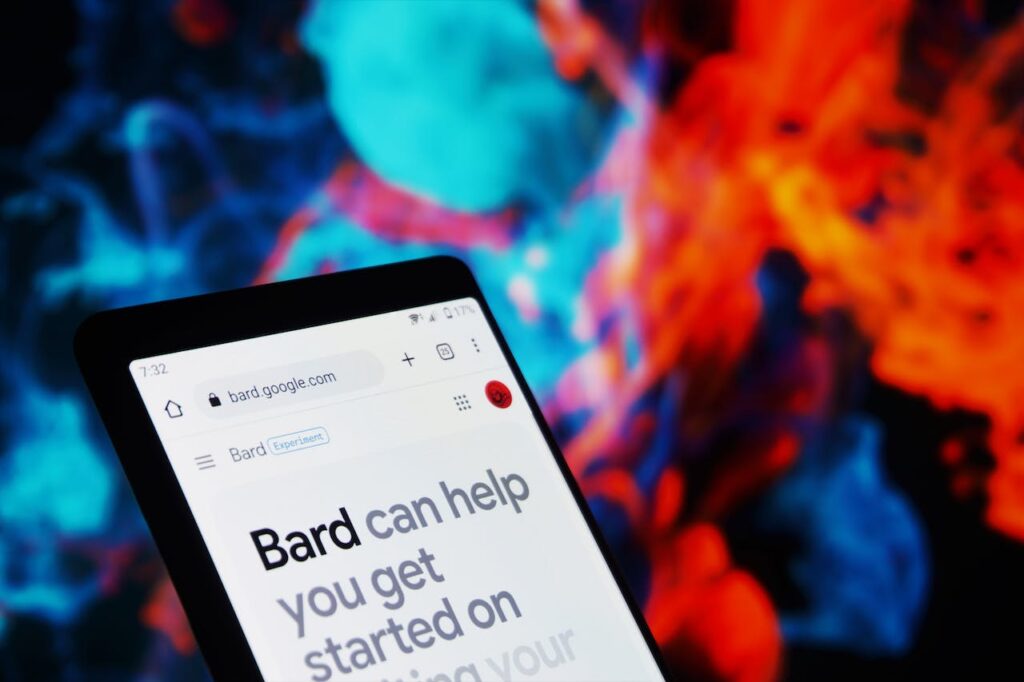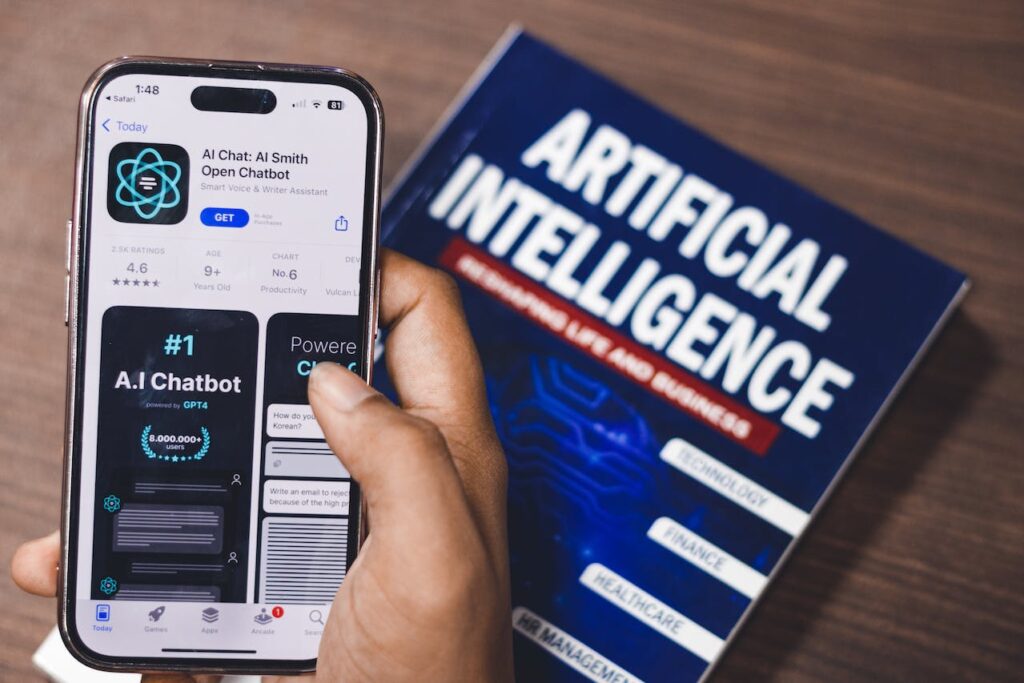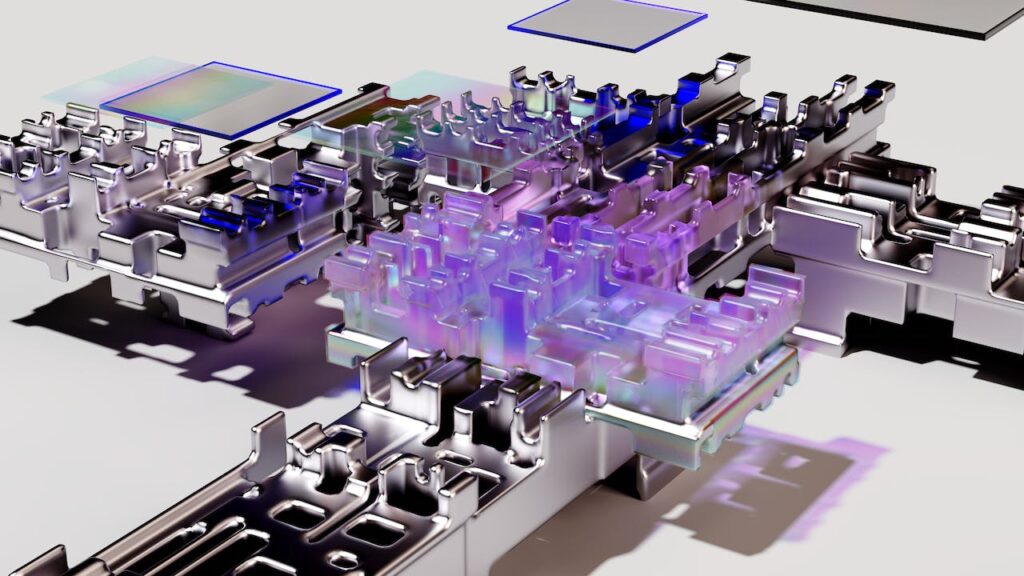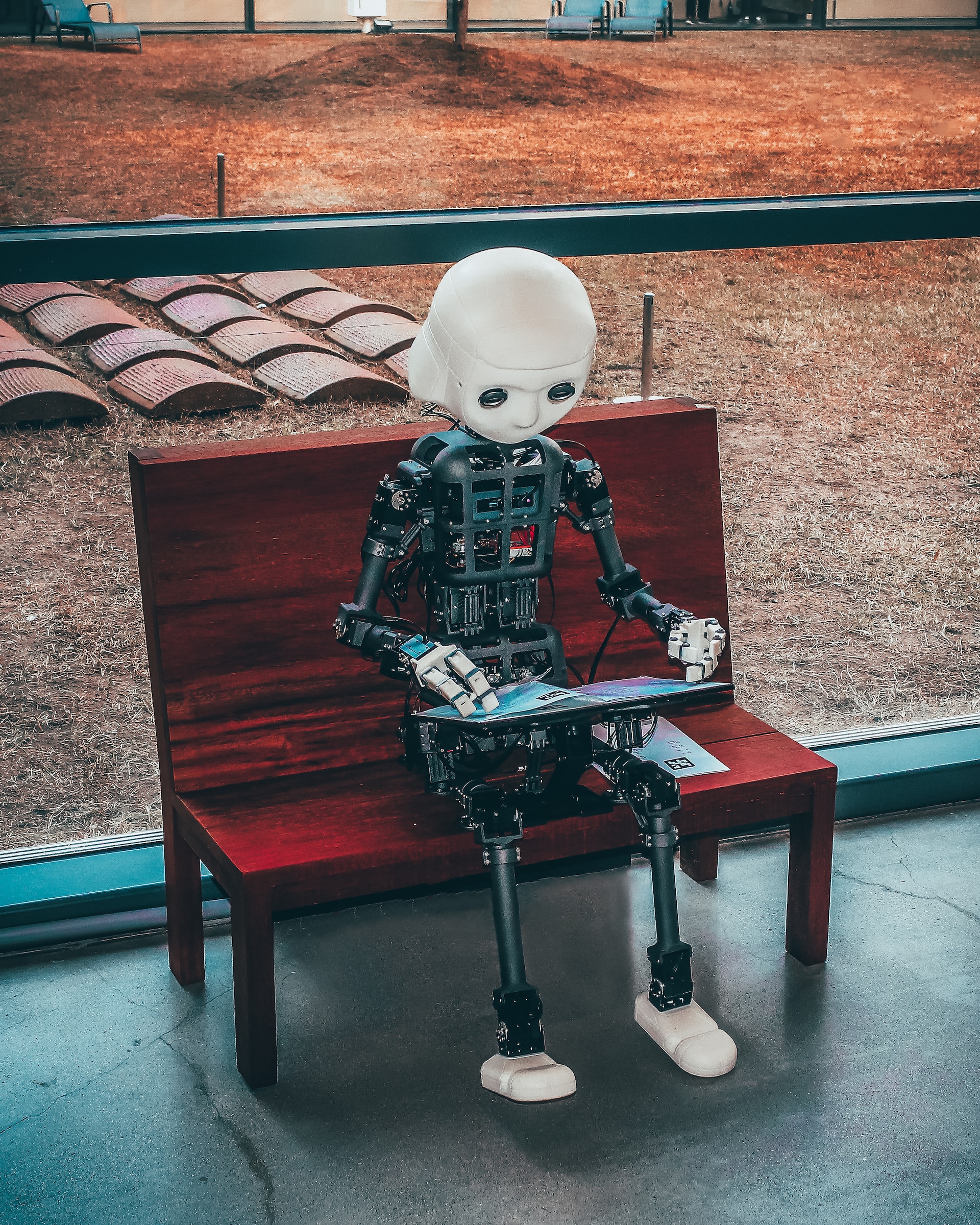Artificial intelligence (AI) is quickly transforming the toolkit available to developers. It is no longer limited to boosting creativity, automating tasks and completely changing the way we create and use websites.
However, what has its role in web development going forward? Will AI replace developers altogether, or will it empower them to reach new heights? As we explore the field of AI-powered web development, let’s discuss few important queries:
Table of Contents
What is AI used for in web development?
AI’s tentacles reach far and wide in the web development sphere. Here are some prominent applications:
- Front-end development: AI can generate code, design user interfaces, and personalize web experiences based on user behavior. Imagine AI instantly crafting responsive layouts, optimizing images for different devices, or even generating personalized landing pages for each visitor.
- Back-end development: AI can automate repetitive tasks like code testing, bug detection, and database optimization. This frees developers to focus on more strategic aspects of the backend, like building robust APIs and scalable architectures.
- Content creation: AI can write compelling copy, generate captivating visuals, and even personalize content based on user preferences. This creates a plethora of opportunities for tailored marketing campaigns and dynamic content production.
Will AI take web development jobs?
While AI will undoubtedly automate some tasks, it’s crucial to understand that it’s not here to replace web developers. Rather, AI will function as a potent instrument, enhancing human capacities and freeing developers to concentrate on more complex jobs requiring imagination, analytical thinking, and problem-solving abilities. Instead of replacing people, AI and humans will work together harmoniously to develop websites in the future.
Which AI tool is best for web development?
The “best” AI tool depends on your specific needs and preferences. However, some popular options include:
- Design AI tools: Adobe XD, Figma, Sketch, Wix ADI
- Coding AI tools: GitHub Copilot, Tabnine, Kite
- Content creation AI tools: Jasper, ShortlyAI, Copy.ai
- Testing and debugging AI tools: DeepCode, CodeClimate, LGTM
- Personalization AI tools: Optimizely, Google Optimize, Adobe Target
How can AI be used on a website?
AI can be incorporate into your website in many ways, such as:

- Chatbots: Facilitating for 24/7 customer support, answering frequently asked questions, and help users through complex tasks.
- Search and navigation: Personalizing search results, recommending relevant content, and improve website navigation for a smooth user experience.
- Dynamic content: Generating personalized product descriptions, displaying targeted advertising, and organize content based on user behavior.
- Accessibility features: User friendly website navigation for users with providing voice-controlled interactions, disabilities, and generating alt text for images.
How long until AI replaces web developers?
The notion of AI completely replacing web developers is unlikely in the foreseeable future. Even though AI is growing more complex, it still lacks human abilities in domains like creativity, critical thinking, and problem-solving. The human ability to understand user needs, adapt to changing trends, and inject personality into projects will remain irreplaceable.
Is AI replacing web designers?
Similar to web developers, AI is unlikely to completely replace web designers. While AI can generate basic layouts and design elements, it lacks the human-centric approach and artistic sensibilities that define good design. AI can, however, be a valuable tool for web designers, assisting with tasks like prototyping, generating variations, and providing design inspiration.
Should I learn AI or web development?

Both AI and web development are valuable skill sets with promising futures. However, the choice depends on your individual interests and career aspirations. Learning AI could be a beneficial career path if you appreciate working with algorithms and data and are attract by the power of AI. If you’re more attract to the creative features of building and designing websites, then web development might be a better fit.
Ultimately, the best option might be to learn both! Gaining a foundational understanding of AI can greatly improve your web development abilities and provide you a competitive advantage in the future.
Can AI create a website for free?
While there are AI-powered website builders available, creating a truly functional and engaging website for free remains challenging. These tools often have limited customization options, lack advanced features, and might require ongoing subscription fees.
How to use generative AI in web development?
Generative AI offers exciting possibilities for web developers. Here are some ways to leverage its potential:
Generating Creative Assets: AI as Your Muse
Imagine brainstorming website designs with an AI muse that can instantly churn out mockups based on your keywords and preferences. That’s the power of generative AI in web development. Tools like Dream by WOMBO and Midjourney can transform your text descriptions into stunning visuals, generating unique logos, illustrations, and even website background images. This saves you hours of manual design work and opens doors to unexpected creative possibilities.
Code Generation: Automating the Mundane
Tired of repetitive coding tasks? AI can help! Copilot from GitHub and Tabnine are AI assistants that suggest code completions and snippets, often predicting your next line of code based on your current context. This greatly expedites development, allowing you to concentrate on the larger picture. While not foolproof, these tools can be game changers for routine coding tasks.
Content Curation: AI as Your Wordsmith
Creating compelling content for your website can be time-consuming. AI tools like Jasper and ShortlyAI can generate blog posts, product descriptions, and even social media content based on your prompts and target audience. This doesn’t mean abandoning your writing voice, but rather utilizing AI as a powerful tool to overcome writer’s block and generate fresh ideas.
Personalization: Tailoring the Experience
AI can personalize your website for each visitor, delivering a unique and engaging experience. Tools like Google Optimize and Adobe Target can analyze user behavior and preferences, dynamically adjusting content, layouts, and even calls to action in real-time. Increased conversion rates, enhanced user engagement, and an all-around more fulfilling experience are the results of this.
Accessibility: AI Bridging the Digital Divide
AI can play a crucial role in making your website accessible to everyone. Tools like Accessibe and Siteimprove automatically identify and fix accessibility issues, ensuring your website is usable for users with disabilities.
The Future of Web Development: Human + AI Synergy
The future of web development is about a powerful partnership with AI. Humans will use their special abilities in critical thinking, problem-solving, and design, while AI will automate monotonous jobs, foster creativity, and offer insightful information. The result of this symbiosis will be even more creative, impactful, and user-focused websites.
So, embrace AI as your partner in progress, not your replacement. You can open up new possibilities and create the foundation for a future where web development is more effective, innovative, and widely available than ever before by utilizing its potential and improving your abilities.
Beyond the Basics: Advanced Applications of AI in Web Development
While we’ve explored the core ways AI can empower web development, let’s delve into some more advanced applications pushing the boundaries of what’s possible:
1. Dynamic Websites: AI-Powered Interactivity

Imagine websites that react and adapt to your every click and scroll, offering a truly immersive and personalized experience. AI can make this possible through techniques like:
- User-driven content generation: AI can analyze user interactions and preferences to dynamically generate relevant content or updates on the fly, creating a sense of continuous engagement.
- Predictive interfaces: AI can anticipate user needs and tailor website elements accordingly, suggesting potential actions or offering shortcuts based on user behavior patterns.
- Conversational interfaces: AI-powered chatbots and voice assistants can seamlessly integrate into your website, providing human-like interaction, answering questions, and guiding users through complex tasks.
2. Data-Driven Optimization: AI as Your Web Analyst

AI can analyze in large scale website data, providing actionable insights to improve performance and user experience. This includes:
A/B testing on steroids: AI can quickly produce and test multiple website variations, identifying the most effective designs, layouts, and calls to action without the need for manual testing.
- Predictive analytics: AI can forecast user behavior and predict future trends, allowing you to proactively optimize your website for maximum engagement and conversion.
- Automated SEO optimization: AI can analyze your website content and suggest targeted keywords and strategies to improve your search engine ranking.
3. Security and Reliability: AI Guarding the Digital Gates
AI can be a powerful ally in protecting your website from malicious attacks and ensuring its smooth operation:
- Real-time anomaly detection: AI can analyze website traffic patterns and identify suspicious activity, preventing cyberattacks before they happen.
- Self-healing websites: AI can detect and automatically fix website errors and bugs, minimizing downtime and ensuring a reliable user experience.
- Personalized security measures: AI can tailor security protocols based on individual user profiles, providing an extra layer of protection for sensitive data.
4. The Rise of Voice and Multimodal Interfaces
AI is paving the way for more natural and intuitive ways to interact with websites:
- Voice-powered navigation: Users can navigate websites and access information hands-free through voice commands, making web experiences more accessible and convenient.
- Multimodal interfaces: AI can combine voice, touch, and gesture recognition to create interactive experiences that adapt to different user preferences and contexts.
- AR and VR integration: AI can power augmented and virtual reality experiences within websites, blurring the lines between the digital and physical worlds.
5. Ethical Considerations: AI for Good
As AI plays a larger role in web development, it’s crucial to consider its ethical implications:
- Bias and fairness: AI algorithms can inherit biases from the data they’re trained on, potentially leading to discriminatory website experiences.
- Transparency and explainability: Users deserve to understand how AI influences their experience on a website.
- Accessibility for all: AI-powered web features shouldn’t create new barriers for users with disabilities.
Conclusion
AI is a potent tool that can boost human programmers’ productivity and creativity in the web development industry, not a threat. Artificial intelligence (AI) has the capacity to produce code, evaluate information, automate laborious operations, offer insights, and improve user experience.. Web developers can use AI to to create more engaging, personalized, and accessible websites that are equiped to the needs and preferences of their users . As technology becomes more improved and universal, web developers need to keep up with new trends and technologies and use AI to create innovative and significant web solutions. Web development is not in the future; artificial intelligence (AI) is here to stay.

